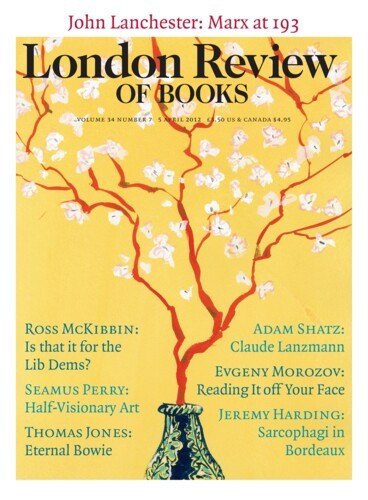Money and the Love of Money: Crisis of the System
Ross McKibbin, 2 August 2012
Is it misleading to think of the government as shambolic – even comprehensively shambolic? It has made some bad mistakes, but politically it has been fairly stable, so far. The Conservatives have achieved most of what they wanted with the Lib Dems acting as cover – probably more than they would have managed as a minority government. The NHS legislation would never have survived...



